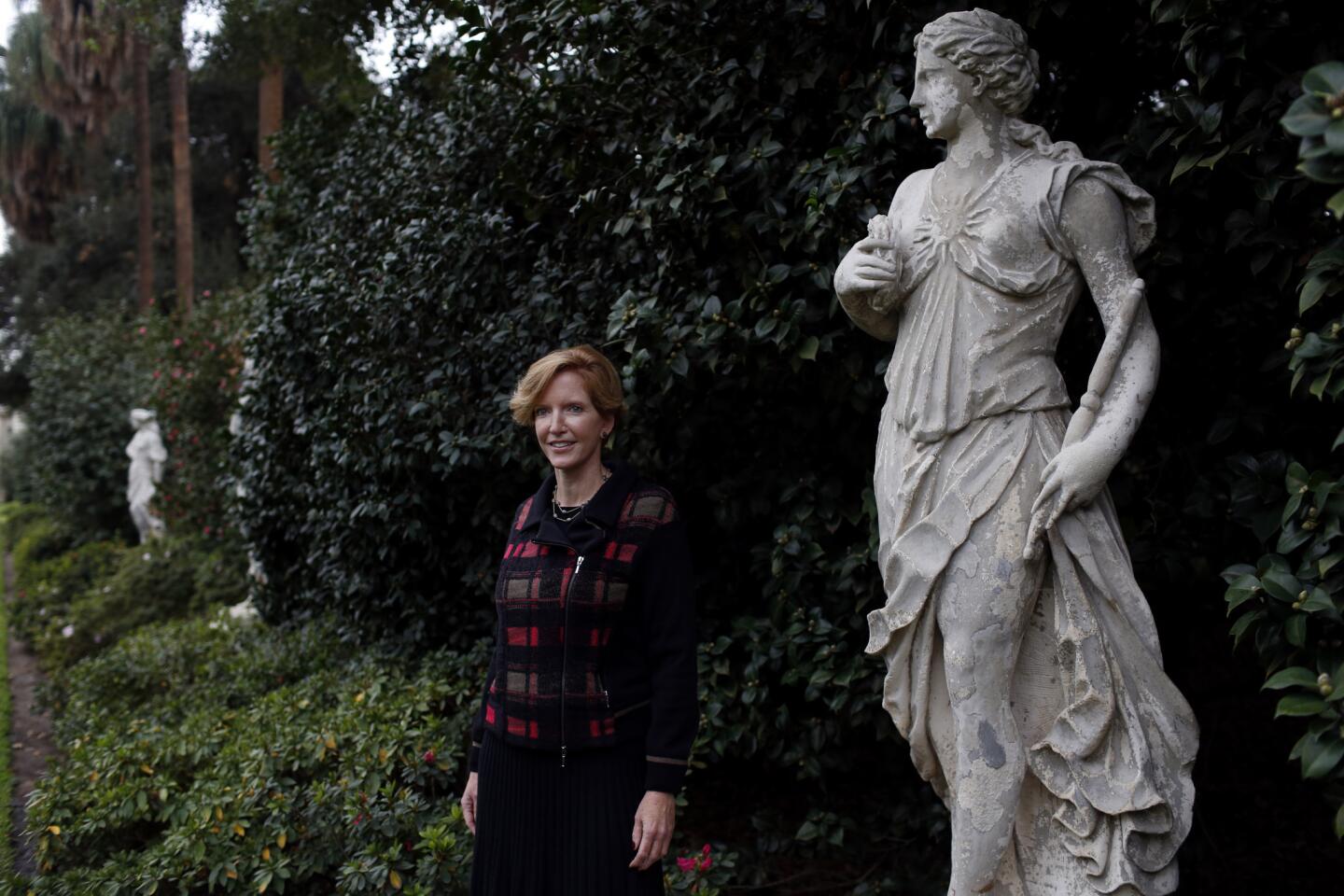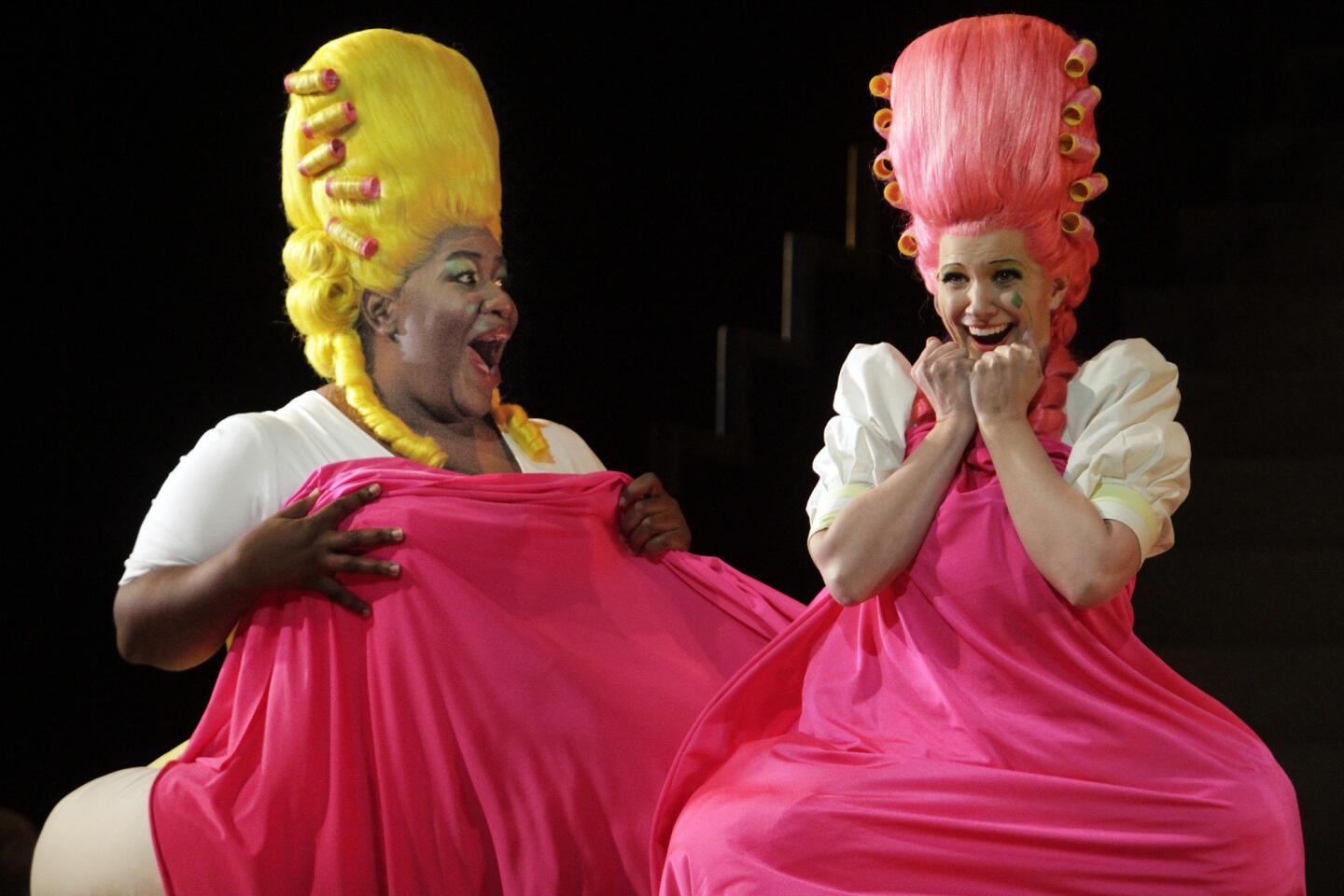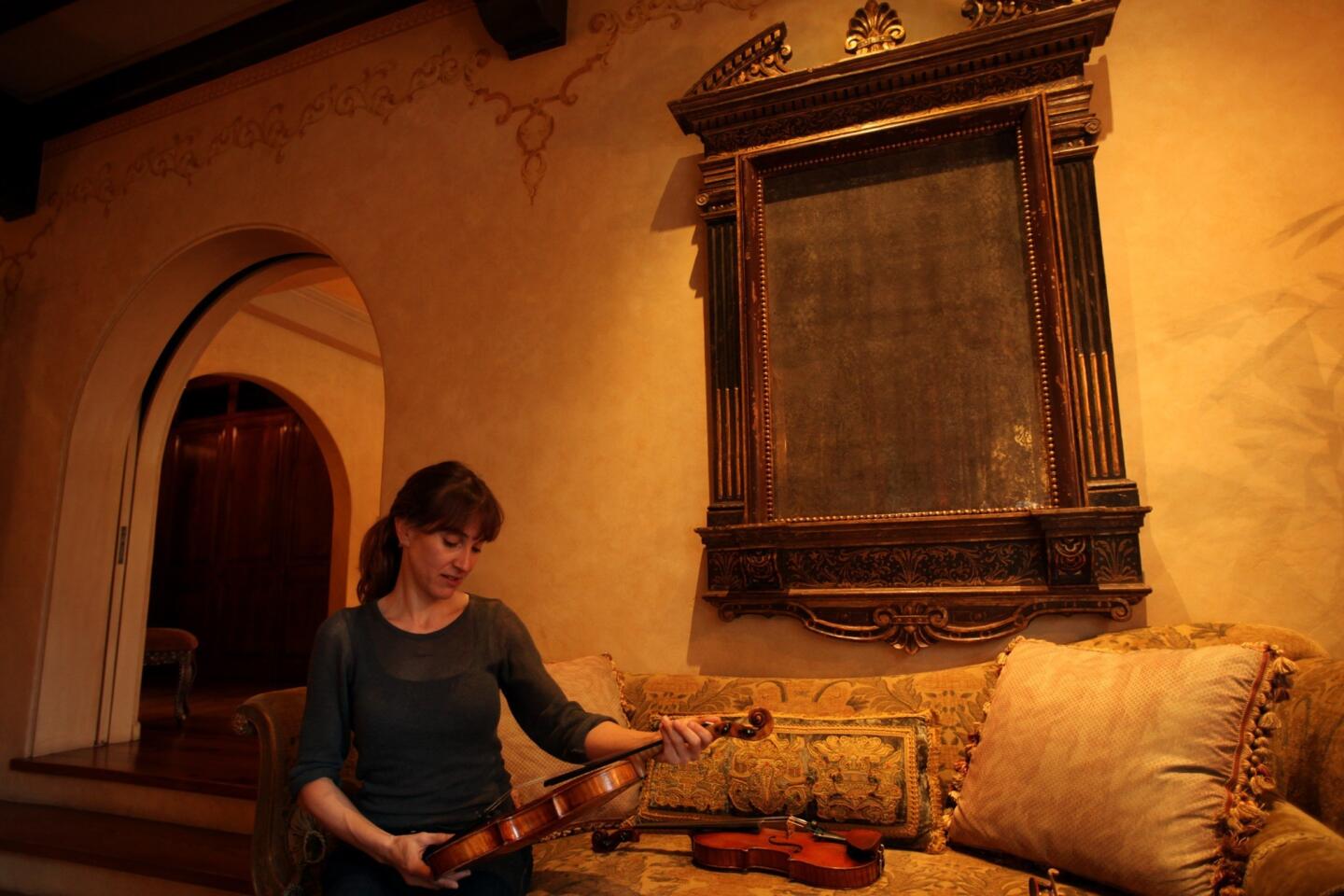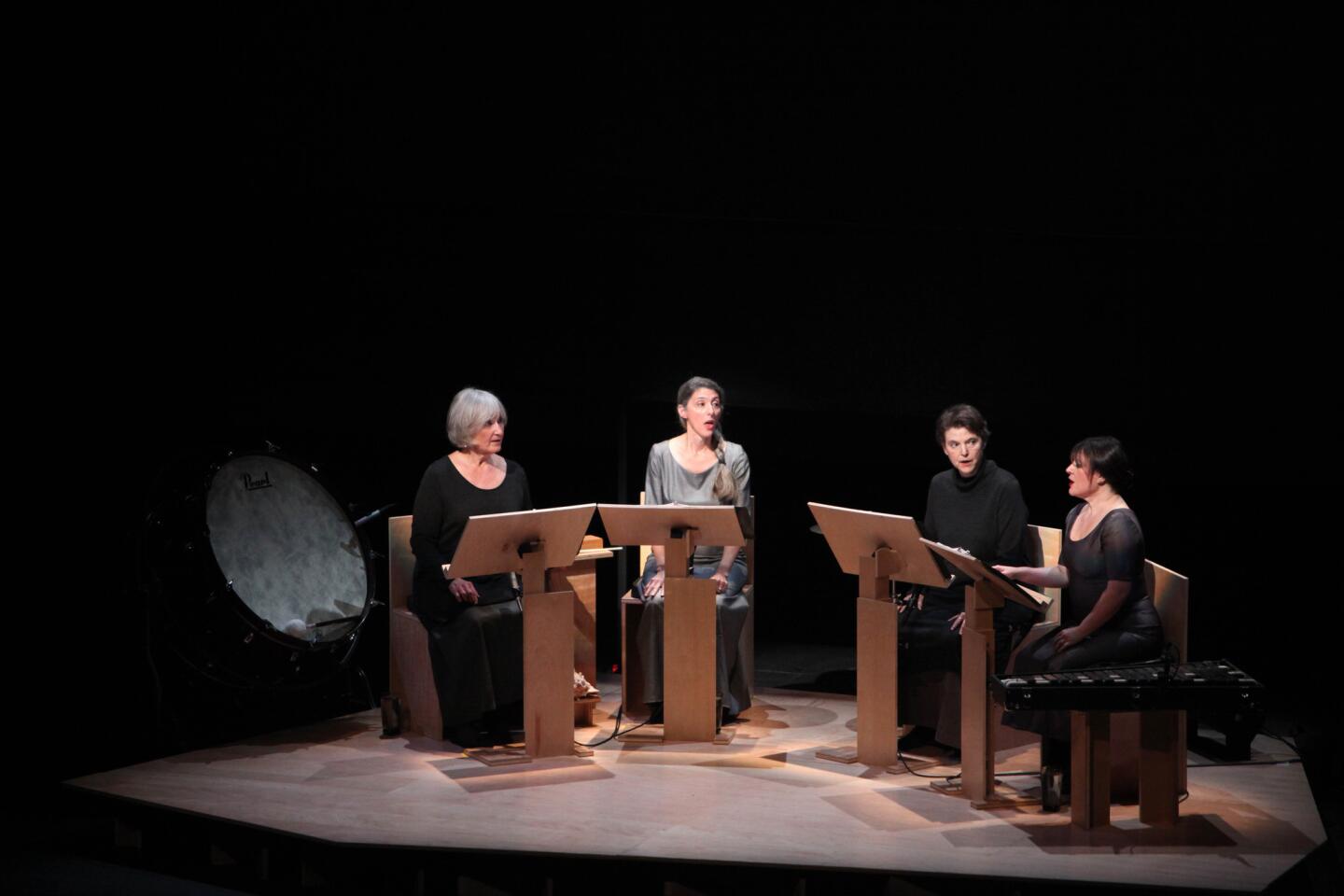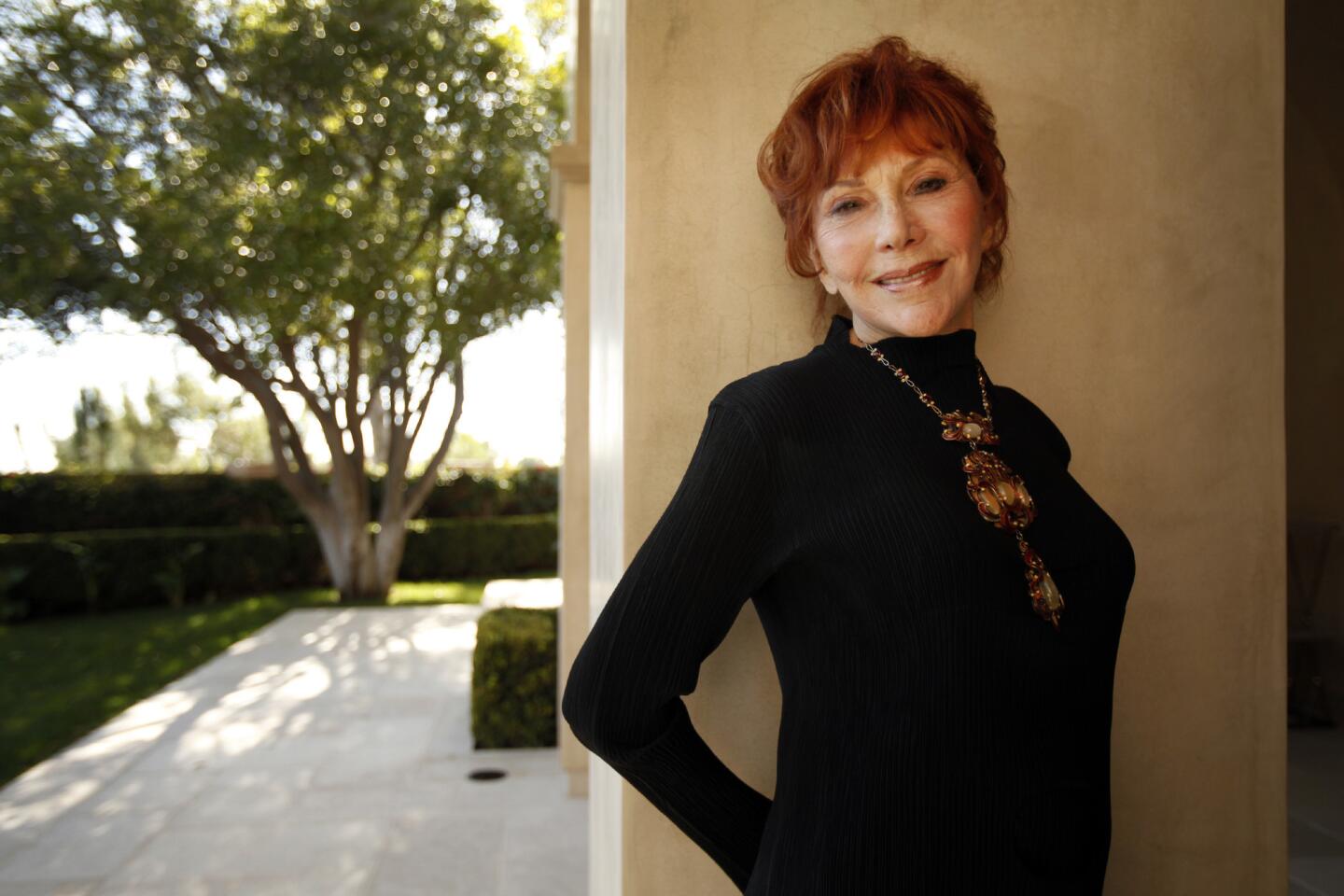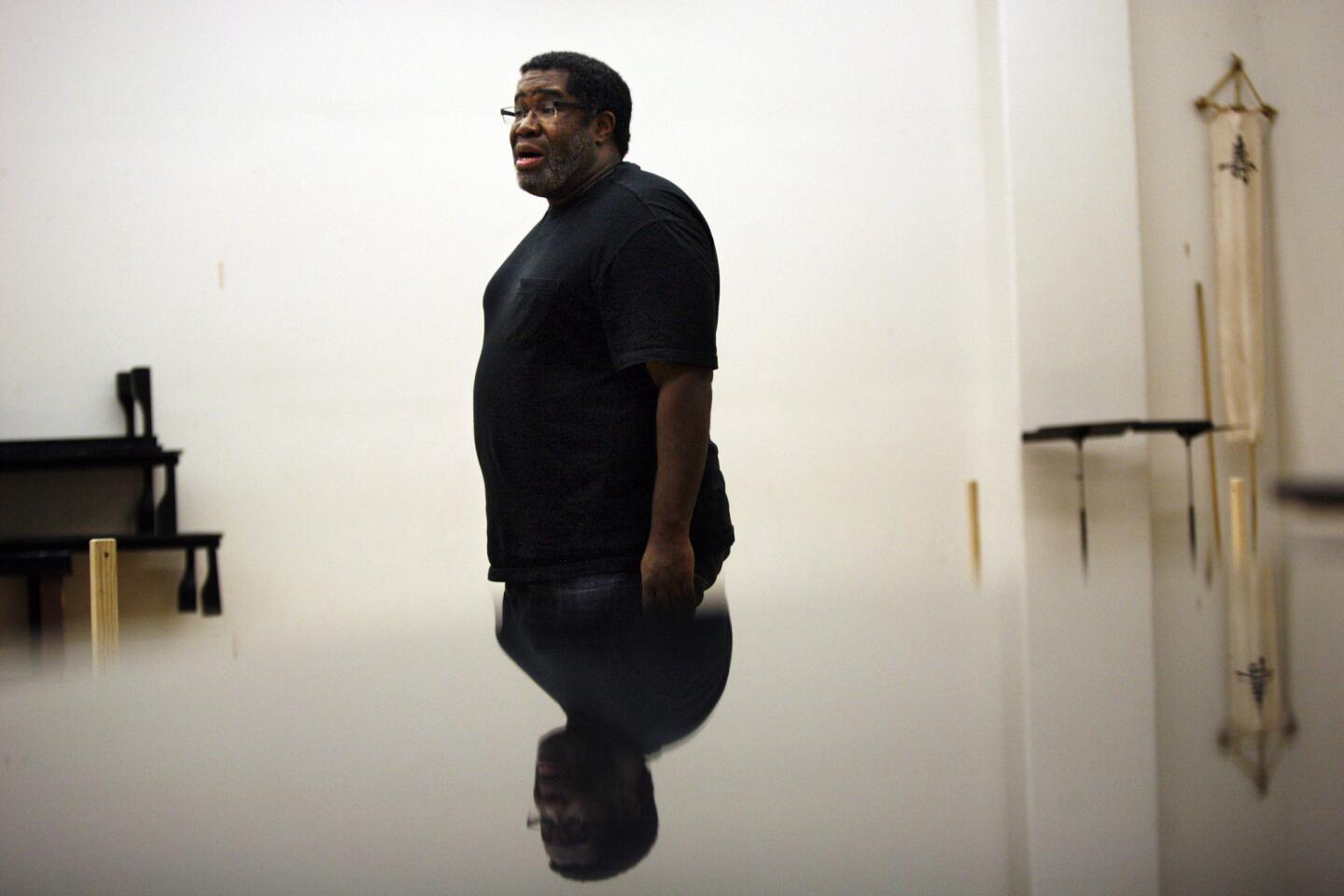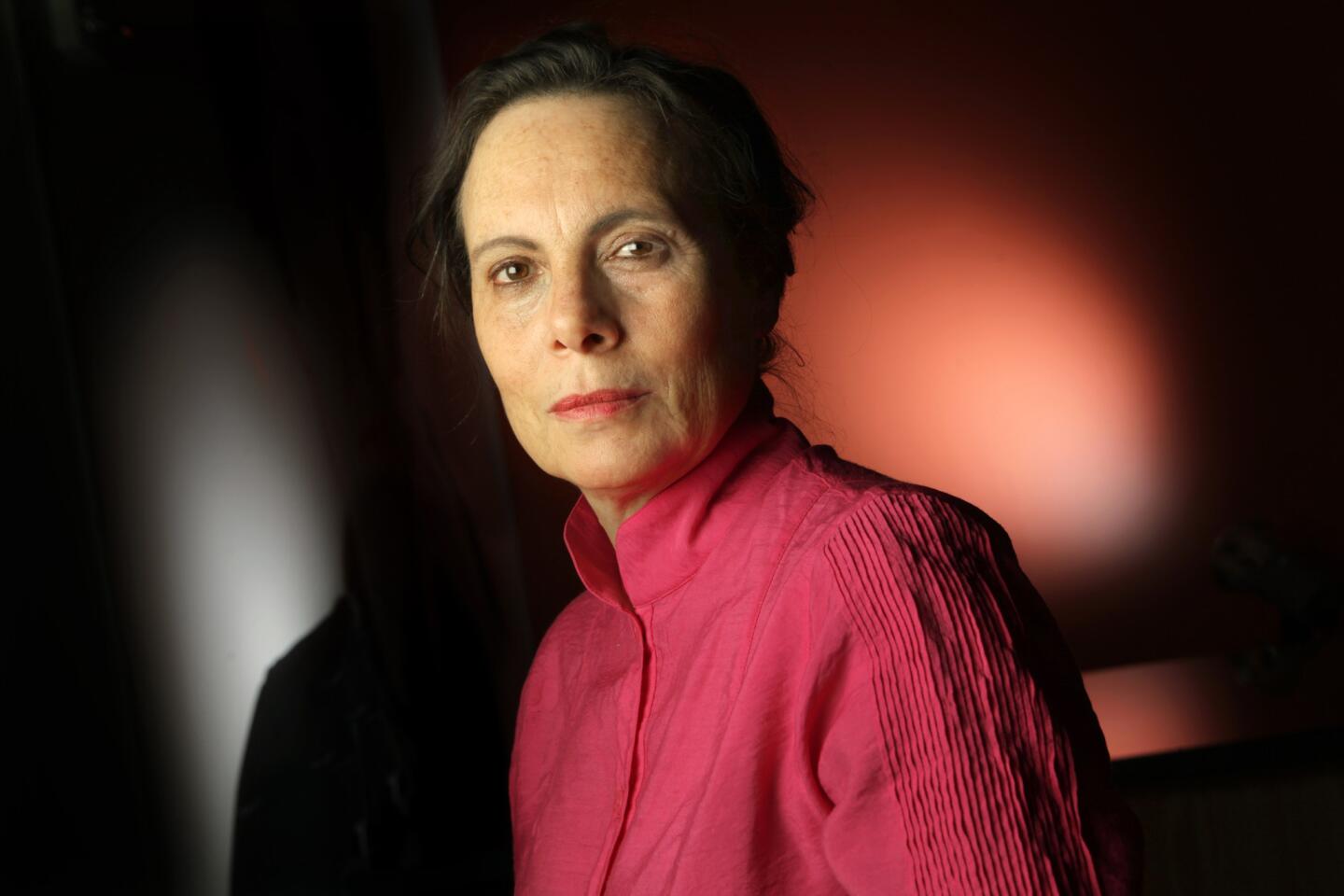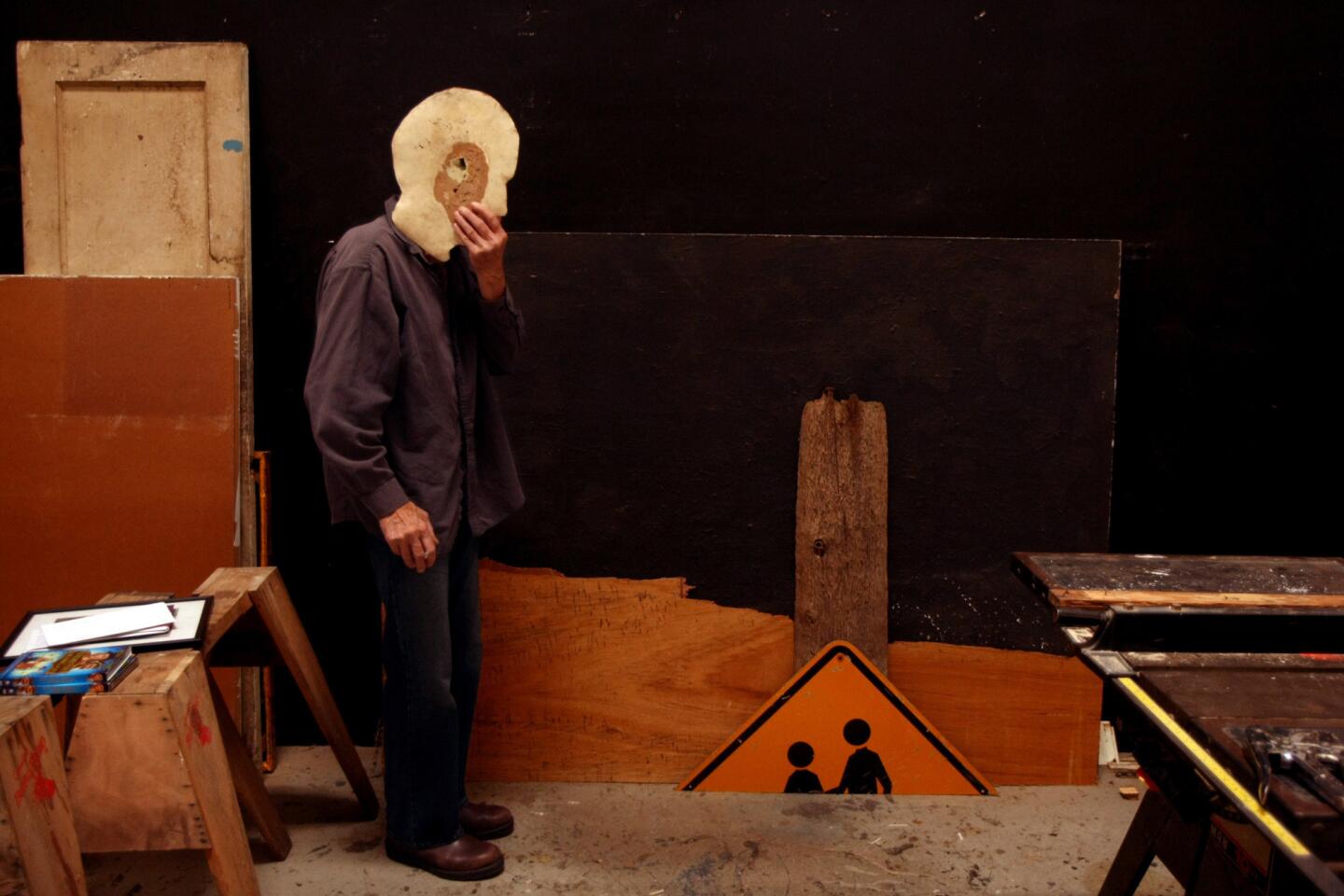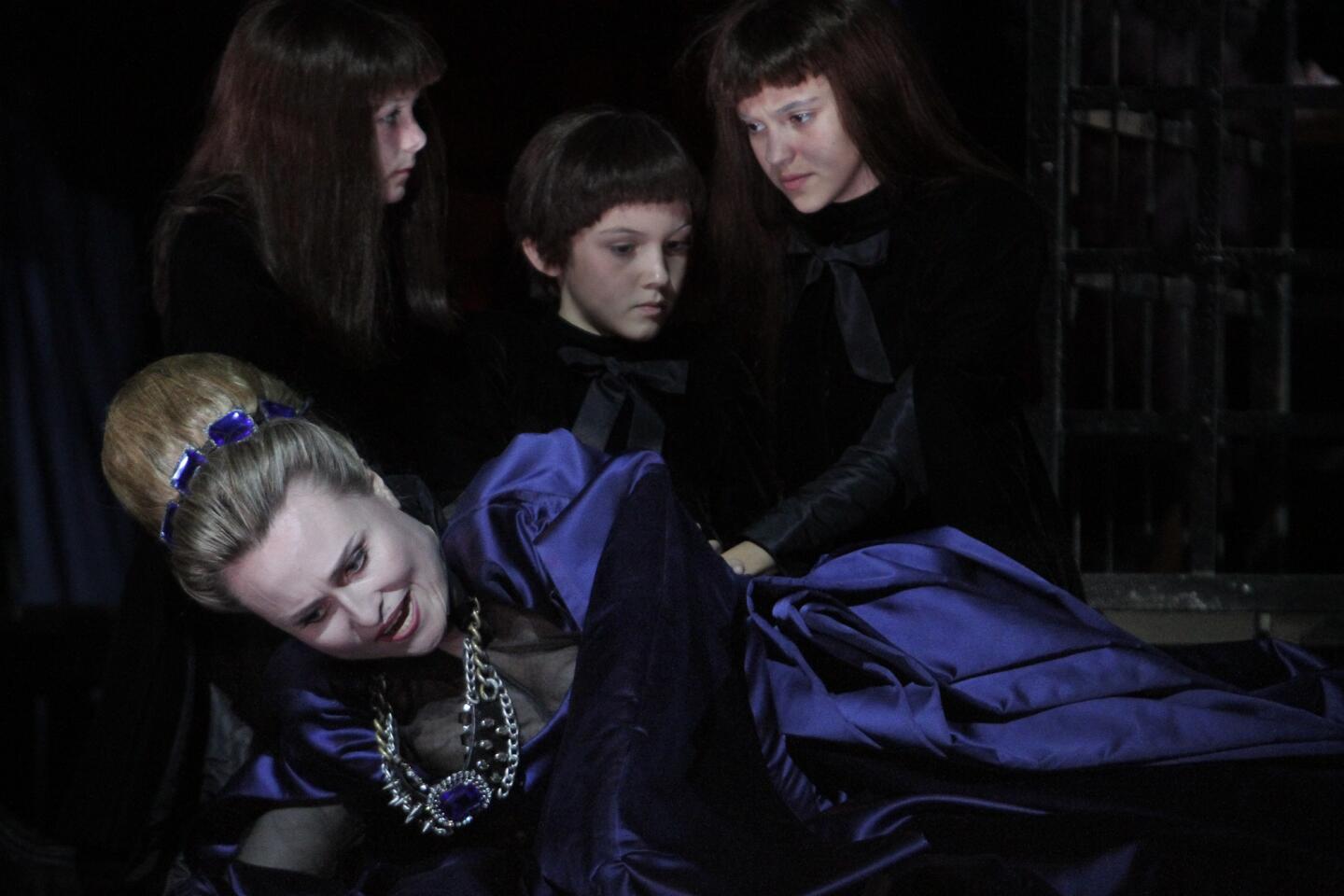In ‘Hungry Woman,’ a Latina’s search for fulfillment
Josefina Lopez admits to being a woman of large appetites — for creative work, haute cuisine, political activism and erotic adventure, among other things.
Where, then, could the L.A. playwright, novelist and screenwriter better hope to fulfill all those cravings simultaneously than in Paris? And where better, she reasoned, could she and her family go to escape the storm and stress of the post-Sept. 11 United States?
So when the author of “Real Women Have Curves,” her husband and the couple’s eldest son decamped to the French capital in the mid-2000s, Lopez said, “I really thought it was for good.” Eighteen months later they’d moved back to Los Angeles, having discovered that certain aspects of Parisian life were less swoony than they’re depicted in, say, a Woody Allen movie.
PHOTOS: Arts and culture in pictures by The Times
“I just didn’t feel at home,” Lopez said during an interview Wednesday at Casa 0101, the Latino-centric theater that she and her husband operate on 1st Street in Boyle Heights. “And maybe I’ll never feel like I’m at home anywhere.”
But Lopez did return with the raw ingredients for her first novel, the semi-autobiographical “Hungry Woman in Paris,” which was published in 2009. A Booklist reviewer praised the work as “lush and sensual ... as rich as a meal at a four-star restaurant.”
Now Lopez has whipped those pages into a darkly witty, semi-surrealist drama that will have its world premiere Friday night at Casa 0101. In “Hungry Woman,” the play, Rachel González takes the lead role of Canela Guerrero, a Mexican American journalist who has grown disaffected with her career, bored with her ho-hum love life and weary of trying to meet her family’s conventional expectations.
Stimulated by her overactive imagination and haunted by suicidal thoughts, she breaks off her engagement to an over-controlling fiancé and goes to study cordon bleu cooking and sample the movable feast of Paris’ 16th arrondissement.
Some of these plot threads, of course, are familiar from countless shelves of bosom-heaving chick-lit novels and inspirational tomes of the “Eat, Pray, Love” sort. But they’ve been treated less often by Latina authors, who as a group haven’t had as many opportunities as Paris Hilton to jet off to Europe in pursuit of their true selves.
González said that although she is separated from Lopez by half a generation, she can identify as a young Mexican American woman with a number of Rachel’s conflicted feelings and pent-up urges.
“I feel like — I was talking about this to Josefina the other day — in terms of the sexuality and being able to express that, and some of the secrets and the shame and that kind of stuff, that exists even within me,” said González, 30, who grew up in Fresno. Performing the play, she added, “has kind of been part of a healing process for me too.”
Another cast member, Linda López, who plays Canela’s tradition-minded mother, said that the play reflects the dilemma felt by many Mexican American and other Latin American young women torn between familial duties and expectations and personal ambitions.
PHOTOS: Best in theater for 2012
“So much was forbidden, especially expressing your own sexuality,” López said about her youth and young adulthood. “Although you were told everything was open to you, it really wasn’t.”
She recalled thwarted hopes as a younger woman of moving to New York to study opera.
“I wasn’t allowed to go,” she said. “My family were like, ‘No, you’re not going, you can’t go, you need to stay here.’ I still hold a little grudge about that.”
Canela’s mother isn’t the only character trying to lay claim to the heroine’s mind, where “Hungry Woman” mostly takes place. A seductively charming British chef’s assistant gives Canela a major pheromone rush. A smarmy magazine editor nags with inane requests as Paris erupts in a bout of ethnic rioting.
But Canela’s most intimate and complex relationship is with La Calaca Flaca, a sort of Aztec-Symbolist muse in Day of the Dead makeup who could be the love child of Frida Kahlo and Charles Baudelaire. Played by Mary Mendoza, who handles several other roles, she’s an eros-thanatos siren who embodies Canela’s creative yearnings and destructive impulses.
In a spooky emotional turning point, La Calaca draws a bath for Canela, who is contemplating taking her life. “It’s that fine line between the nurturing part and the seduction part,” Mendoza said, “because I am trying to take her out of this world into death, as another realm.”
Josefina Lopez acknowledges that “Hungry Woman” draws on lifelong struggles with attention deficit disorder and other emotional problems that were not diagnosed when she was young.
“After we did the first reading, I was in tears, I couldn’t stop, and I felt so naked,” she said. “And I’m all for being naked, but it was the most naked I had ever felt. And part of the reason I wrote this was because my greatest fear was to commit suicide. My other great fear was to end up in a mental institute, because my parents didn’t understand what I had.
“Now, by putting it on stage I really I am bringing it into the light, because I don’t want to feel that anymore.”
In the play, as in Lopez’s life, a sort of rapprochement is reached with family and country. Canela’s return to Los Angeles is motivated (as Lopez’s was), in part, by wanting to participate in the Latino immigrant-rights movement that began sweeping the United States several years ago.
Corky Dominguez, the play’s director, said that “Hungry Woman” is a reminder that, whatever the demands of family and society, we all occasionally need to stop and smell the crème brûlée.
“We really need to find that time to really nurture our souls and our desires,” he said.
‘Hungry Woman,’
Where: Casa 0101 Theater, 2102 E. First Street (at St. Louis Street), Los Angeles
When: 8 p.m.m Fridays and Saturdays and 5 p.m. Sundays through June 30
Info: 323.263.7684, www.casa0101.org
More to Read
The biggest entertainment stories
Get our big stories about Hollywood, film, television, music, arts, culture and more right in your inbox as soon as they publish.
You may occasionally receive promotional content from the Los Angeles Times.
